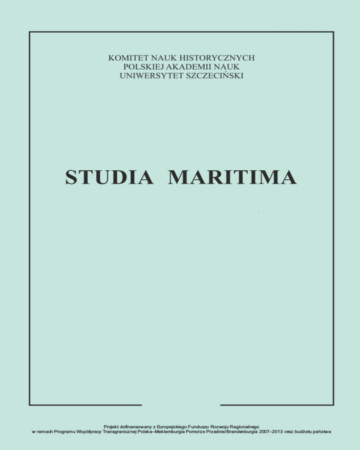






| Authors: |
Zygmunt Stefan
Zalewski
Uniwersytet Warmińsko-Mazurski w Olsztyni |
| Keywords: | Churchill-Carden’s plan Dardanelles Gallipoli Winston Churchill Maurice Hankey Sackville H. Carden Eastern Mediterranean Squadron |
| Data publikacji całości: | 2017 |
| Page range: | 34 (101-134) |
| 1. | Archiwalia |
| 2. | The National Archives, London [TNA]. |
| 3. | Admiralty Papers [ADM]. |
| 4. | Cabinet Papers [CAB]. |
| 5. | Publikacje dokumentów |
| 6. | Army Dispatches with Naval Operations and Mentions, Part 2 of 3 London Gazette Editions 29623-30447 (June 1916–December 1917), http://www.naval-history.net/WW1NavyBritishLGDispatchesaArmyNavyIndex.htm. |
| 7. | Das Buch vom Kriege 1914–1918. Urkunden, Berichte, Briefe, Erinnerungen, red. Benno Schneider, Ulrich Haacke. Ebenhausen bei München: Langewiesche-Brandt, 1934. |
| 8. | Asquith, H.H. Letters to Venetia Stanley, red. Michael Brock, Eleanor Brock. Oxford: Oxford University Press, 1982. |
| 9. | The Middle East and North Africa in World Politics. A Documentary Record, t. I: European Expansion, 1535–1914, red. Jacob C. Hurewitz. New Haven–London: Yale University Press, 1975. |
| 10. | Wspomnienia |
| 11. | Kannengiesser, Hans. Gallipoli. Bedeutung und Verlauf der Kämpfe 1915. Berlin: Schlieffen-Verlag, 1927. |
| 12. | Opracowania |
| 13. | Carlyon, Les A. Gallipoli. London–New York–Toronto–Sydney–Auckland: Doubleday, 2001. |
| 14. | Churchill, Winston S. The World’s Crisis, 1911–1918, t. II. London: Odhams 1942. |
| 15. | Clews, Graham T. Churchill’s Dilemma: The Real Story Behind the Origins of the 1915 |
| 16. | Dardanelles Campaign. Santa Barbara, Calif.: Praeger, 2010. |
| 17. | Corbett, Julian S. Naval Operations. History of the Great War Based on Official Documents, t. I–III. London: Longmans, 1938. |
| 18. | Curran, Tom. „Who was Responsible for Dardanelles Naval Fiasco?”. Australian Journal of Politics and History 57 (2011) 1: 17–33. |
| 19. | Dąbrowski, Jan. Wielka Wojna, 1914–1918. Warszawa: Księgarnia Trzaski, Everta i Michalskiego, 1937. |
| 20. | Der Weltkampf um Ehre und Recht. Die Erforschung des Krieges in seiner wahren Begebenheit, auf amtlichen Urkunden und Akten beruhend, red. Max Schwarte, t. I: |
| 21. | Der deutsche Landkrieg, cz. 1: Vom Kriegsbeginn bis zum Frühjahr 1915, oprac. Wilhelm von Dommes. Leipzig: Finking, 1921. |
| 22. | Earle, Edward M. Turkey and the Great Powers and the Bagdad Railway. New York: Macmillan, 1924. |
| 23. | French, David. British Strategy and War Aims, 1914–1916. London: Taylor & Francis, 2014. |
| 24. | French, Gerald. The Life of Field Marshall Sir John French First Earl of Ypres. London: Cassell, 1931. |
| 25. | Fromkin, David. A Peace to End All Peace: The Fall of the Ottoman Empire and the Creation of the Modern Middle East. New York: Holt, 2009. |
| 26. | Gozdawa-Gołębiowski, Jan, Tadeusz Wywerka-Prekurat. Pierwsza wojna światowa na morzu. Gdańsk: Wydawnictwo Morskie, 1973. |
| 27. | Historia Dyplomacji, red. Władimir M. Chwostow, t. III. Warszawa: Książka i Wiedza, 1973. |
| 28. | Ilustrowana Historia Wojny Światowej (1914–1920), red. Rudolf Kodž. Warszawa: Wiedza Współczesna, 1931. |
| 29. | James, William. The Naval History of Great Britain from the Declaration of War by France, in February 1793; to the Accession of George IV in January 1820; with the Account of the Origin and Progressive Increase of the British Navy, t. IV. London: Baldwin, Cradock, and Joy, 1824. |
| 30. | Keegan, John. The First World War. London: Hutchinson, 1998. |
| 31. | Marder, Arthur J. From the Dreadnought to Scapa Flow. The Royal Navy in the Fisher Era, 1904–1919, t. II: The War Years. To the Eve of Jutland. London: Oxford University Press, 1965. |
| 32. | Moorehead, Alan. Gallipoli. New York: Ballantine Books, 1956. |
| 33. | Prior, Robin. Churchill’s ‘World Crisis’ as History. London: Croom Helm, 1983. |
| 34. | Prior, Robin. „Gallipoli as a Combined and Joined Operation”. W: Naval Power and Expeditionary Warfare. Peripheral Campaigns and New Theatres of Naval Warfare, red. Bruce A. Elleman, Sarah C.M. Paine, 45–57. London–New York: Routledge, 2011. |
| 35. | Rose, Norman. Winston Churchill. Warszawa: Amber, 1996. |
| 36. | Vat, Dan van der. The Ship that Changed the World. The Escape of the Goeben to the Dardanelles, in 1914. London–Sydney–Auckland–Toronto: Hodder & Stoughton, 1985. |
| 37. | Zalewski, Zygmunt S. Dardanele i Gallipoli w polityce i strategii mocarstw europejskich podczas I wojny światowej. Olsztyn: Wydawnictwo Uniwersytetu Warmińsko-Mazurskiego, |
| 38. | Zalewski, Zygmunt S. „Działania zbrojne w Mezopotamii i Persji w latach 1914–1918”. W: Historia i pamięć. Studia z dziejów XX w., red. Witold Gieszczyński, Wiesław |
| 39. | B. Łach, Karol Sacewicz, 289–330. Olsztyn: Instytut Historii i Stosunków Międzynarodowych Uniwersytetu Warmińsko-Mazurskiego, 2011. |
| 40. | Zalewski, Zygmunt S. „Walka dyplomatyczna i zbrojna o panowanie na Morzu Czarnym podczas I wojny światowej”. Prawo Morskie 10 (1998): 109–129. |
| 41. | Zalewski, Zygmunt S. „Walka o Kanał Sueski podczas I wojny światowej”. W: Od starożytności do współczesności. Studia historyczne, red. Józef Śliwiński, 111–130. Olsztyn: ZHSŚ WSP (1997). |